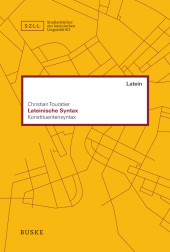
Decarbonizing the Petroleum Industry
Current Status, Ongoing Activities, and Future Prospects
- Publisher's listprice EUR 177.99
-
75 129 Ft (71 551 Ft + 5% VAT)
The price is estimated because at the time of ordering we do not know what conversion rates will apply to HUF / product currency when the book arrives. In case HUF is weaker, the price increases slightly, in case HUF is stronger, the price goes lower slightly.
- Discount 10% (cc. 7 513 Ft off)
- Discounted price 67 616 Ft (64 396 Ft + 5% VAT)
Subcribe now and take benefit of a favourable price.
Subscribe
75 129 Ft

Availability
Not yet published.
Why don't you give exact delivery time?
Delivery time is estimated on our previous experiences. We give estimations only, because we order from outside Hungary, and the delivery time mainly depends on how quickly the publisher supplies the book. Faster or slower deliveries both happen, but we do our best to supply as quickly as possible.
Product details:
- Publisher Elsevier
- Date of Publication 17 September 2025
- ISBN 9780443315244
- Binding Paperback
- No. of pages350 pages
- Size 229x152 mm
- Language English 700
Categories
Long description:
Decarbonizing the Petroleum Industry: Current Status, Ongoing Activities, and Future Prospects aims to provide a comprehensive understanding of the challenges and opportunities associated with transforming the petroleum industry into a more sustainable and environmentally friendly sector. It addresses the urgent need to reduce greenhouse gas emissions and combat climate change by adopting innovative technologies, implementing renewable energy solutions, and reducing carbon dioxide emissions throughout the value chain. The book covers a range of topics related to decarbonization in the petroleum industry. It begins with an overview of the industry's historical contribution to greenhouse gas emissions and establishes the link between fossil fuel combustion and climate change. The book then explores various decarbonization technologies and strategies that can be applied to the industry, including carbon capture, utilization, and storage (CCUS), electrification, renewable energy integration, hydrogen, and biofuels. Subsequent chapters delve into specific areas of the petroleum industry, including upstream operations, refining and downstream processes, transportation and distribution, and the production of value-added sustainable products from CO2. Chapters discuss innovative approaches, technologies, and practices that can help reduce emissions and promote sustainability at each stage of the industry's value chain. The book culminates with an examination of policy and regulatory frameworks for decarbonization, including international agreements, government policies, incentives, and carbon pricing mechanisms. It explores the role of industry collaborations and partnerships in achieving decarbonization goals and addresses the challenges and opportunities in financing the transition, overcoming technological barriers, building a skilled workforce, and unlocking new business models and market opportunities.
- Delivers cutting-edge technologies and strategies that offer detailed insights into the latest decarbonization technologies and strategies relevant to the petroleum industry, including carbon capture, utilization, and storage (CCUS), electrification, renewable energy integration, hydrogen and biofuels, methane mitigation, and sustainable refining techniques
- Features case studies of decarbonization projects that offer valuable real-world examples highlighting successful initiatives, lessons learned, and best practices to providing readers tangible examples to guide their own decarbonization efforts
- Examines policy and regulatory frameworks relevant to decarbonizing the petroleum industry including international agreements, government policies, carbon pricing mechanisms, and industry collaborations
- Equips readers with innovative approaches to reduce emissions and foster sustainable practices in the petroleum sector
Table of Contents:
1. Introduction of Petroleum and Petroleum Industry
2. The Petroleum Industry and Climate Change
3. Decarbonization Technologies and Strategies
4. Technologies for Reducing Emissions in Upstream Operations
5. Sustainable Refining and Downstream Processes
6. Carbon Utilization and Integration in the Petroleum Industry
7. Transportation and Distribution (mid-stream): Toward Zero-Emission Solutions
8. Policy and Regulatory Frameworks for Decarbonization of the Petroleum Industry
9. Case Studies in Decarbonization of the Petroleum Industry
10. Future Prospects and Challenges in Decarbonizing the Petroleum Industry












